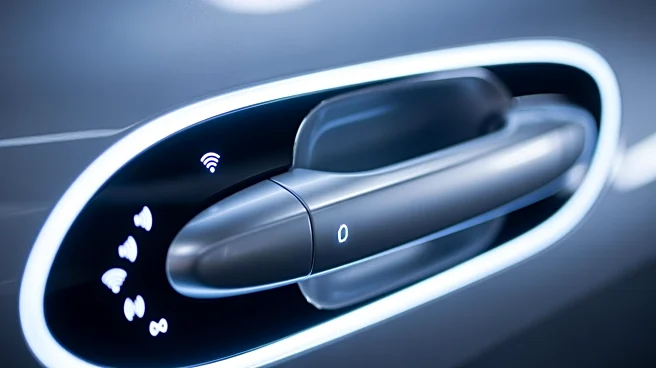What's Happening?
Suppliers to China's electric-vehicle battery makers are advocating for increased prices for cobalt-based materials due to a significant rebound in cobalt prices and a tightening market for battery raw materials. The Democratic Republic of the Congo,
the world's leading cobalt producer, imposed export restrictions earlier this year, causing cobalt prices to more than double, trading near $24 a pound. This price surge has ended a three-year slump for the metal. Nickel-manganese-cobalt (NCM) precursors, essential for NCM batteries used in about 20% of Chinese EVs, are now being offered at higher prices for long-term contracts. Producers are pushing for reduced discounts on spot cobalt sulfate, from the usual 10% to closer to 5%. The negotiations are challenging due to the wide pool of suppliers available to major NCM battery makers.
Why It's Important?
The push for higher prices by Chinese battery material makers reflects broader shifts in the global supply chain for electric vehicle components. As cobalt prices rise, the cost of producing NCM batteries, favored for longer-range and performance-focused EVs, may increase, potentially affecting the pricing and competitiveness of electric vehicles. This development could influence the strategic decisions of battery manufacturers and automakers, impacting the EV market's growth trajectory. Additionally, the situation underscores the geopolitical significance of cobalt, as supply chain disruptions in the Democratic Republic of the Congo can have far-reaching effects on global markets.
What's Next?
Negotiations between battery material suppliers and buyers are expected to continue, with potential adjustments in contract terms and pricing strategies. The outcome of these negotiations could set a precedent for future pricing in the battery materials market. As the cobalt market stabilizes, stakeholders will likely monitor the impact on EV production costs and consumer prices. Additionally, the situation may prompt further exploration of alternative battery chemistries or sourcing strategies to mitigate reliance on cobalt.
Beyond the Headlines
The reclassification of cobalt as a critical resource highlights the ethical and environmental considerations surrounding its extraction and use. The Democratic Republic of the Congo's export restrictions have brought attention to the challenges of sourcing materials from regions with complex socio-political dynamics. This situation may drive increased scrutiny of supply chain practices and encourage investment in sustainable and ethical sourcing initiatives.
















